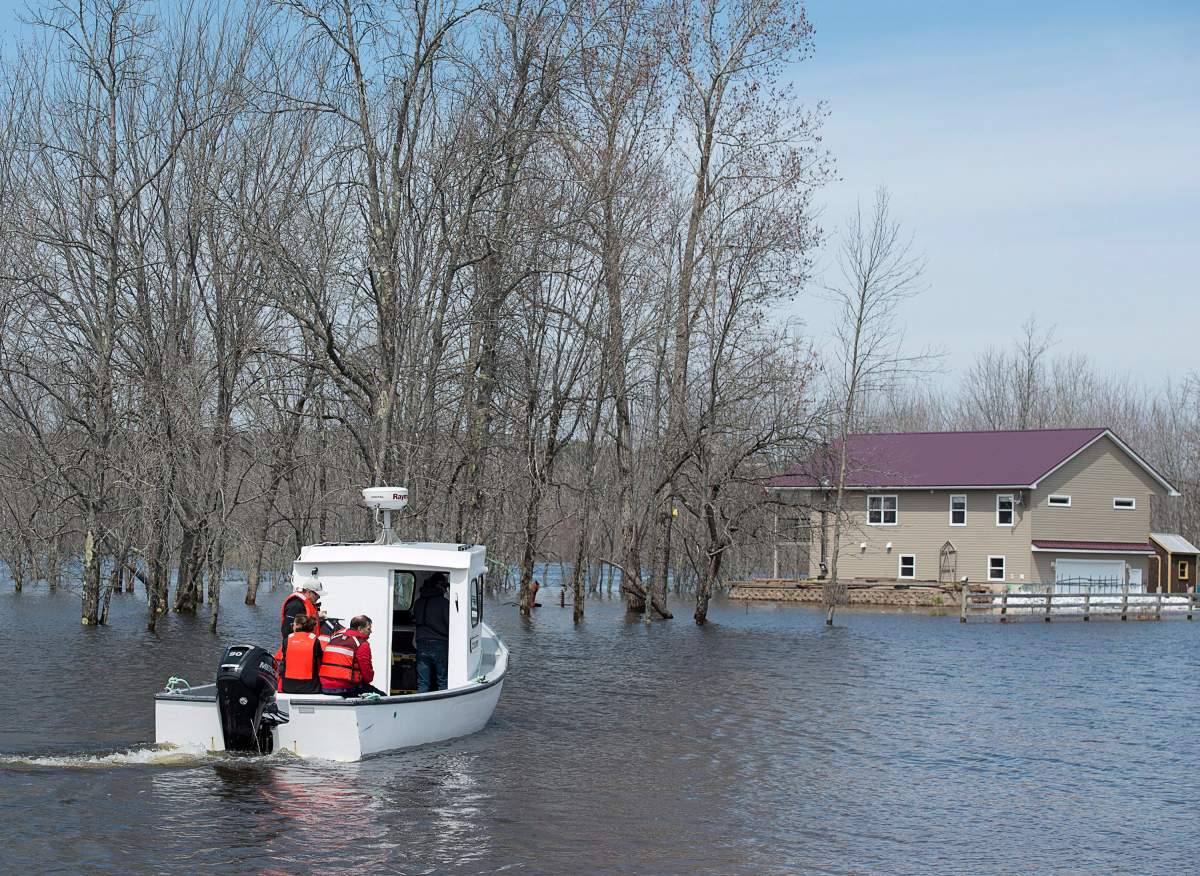The New Brunswick government will compensate cottage owners whose properties were damaged by record-breaking flooding, while also requiring people with waterfront properties to develop plans to mitigate against future floods.

Environment and Local Government Minister Andrew Harvey announced the special, one-time payment in Fredericton on Wednesday, weeks after floodwaters first swept through several communities along the Saint John River causing extensive damage to primary and recreational homes.
READ MORE: N.B. government urging residents of flooded-out homes to report damage
The river – swollen by heavy rains and snow melt – swamped homes throughout the region and caused some cottages to collapse, with some even floating off their foundations.
“Providing assistance to recreational property owners will ensure potential health and safety risks are removed and the natural environment in these communities is restored,” Harvey said at a briefing Wednesday.
“We can’t leave properties affected with contaminants or garbage, furniture (and) appliances that washed up on people’s properties. We need to have this program so that people can clean up their own properties.”
Particularly hard hit was the Grand Lake area, where recreational properties were inundated with water and debris was scattered throughout the popular summer vacation spot.
WATCH: Costly and exhausting cleanup starts in flooded areas of New Brunswick
-P_TOR1CF5A_1_848x480_1233203267820.jpg?w=1040&quality=70&strip=all)
Harvey said cottage owners must apply for the financial relief and that payments will be capped at $6,100 to help clean up their property. The money can be used for labour and contracted cleanup costs. Claims will be assessed by adjusters after property owners register the damage with the province by phone or online.

Get daily National news
“There could be 2,000 recreational properties that could be affected by the flooding,” he said, adding that officials don’t yet know how much the new compensation will cost.
The province said it will also require people to submit plans that include new mitigation conditions before permits will be issued under the Watercourse and Wetland Alteration regulation.
Harvey said people wanting to do work on their property must have the permit if within 30 metres of a waterway. This includes new building construction, reconstruction or expansion of existing buildings.
He said the goal is to reduce the likelihood that a building or its contents will be damaged by flood. The fees for permits will be waived to encourage people to comply.
David Coon, leader of the provincial Green Party, said the province should have gone further in setting down requirements to avoid flooding in the future.
The member of the legislature said the province wasn’t strict enough in the past decade in preventing building close to the water and cutting down vegetation and trees near the water.
“Routinely, government for years has been handing out permits that permitted that to happen,” said the environmentalist, who argues it would be better to generally prohibit building closer than 30 metres to the water.
The Green leader is also looking for provincial regulations that will limit new construction in flood plains.
“Nobody should have the disaster of having their home flooded out. The government shouldn’t be handing out exemptions to a regulation that would help avoid a property being damaged or destroyed by flood waters,” he said.
He said he’s even seen permits given out allowing people to build on fill going out into the lakes and rivers, despite the flood risk.
Greg MacCallum, director of the Emergency Measures Organization, said about 1,800 people have so far registered with the Disaster Assistance Financial Program, which is for primary residences damaged in the flooding.
“It’s too early to have a complete picture of the magnitude of this, but the damage we have seen so far is truly devastating,” he said.





Comments